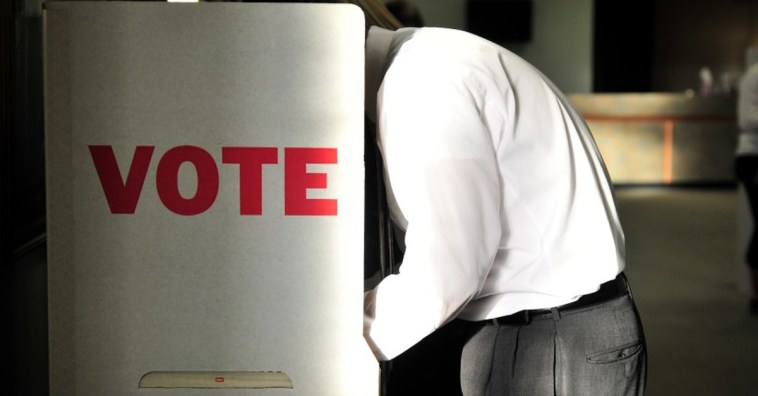There are two Republican primaries Tuesday – one in Nebraska and one in West Virginia.
Videos By Rare
But with the announcement that Donald Trump is the only Republican left with an active campaign, some are asking why anyone would bother to go to the polls.
After his win in the Indiana primary last week and the news that both Ted Cruz and John Kasich were suspending their campaigns, Trump was named by the Republican National Committee chairman Reince Priebus as the “presumptive nominee” for the GOP.
So, some ask, what is the purpose of the remaining primaries? For what are they competing?
The same thing they have been competing for since the Iowa caucus – delegates.
For the Republicans, the delegate race continues until one candidate gets the required 1,237 delegates to win the nomination. While Trump is only a couple of hundred delegates shy of that number, you have to remember that other candidates are still on the ballots in the nine states which have yet to hold their primaries, and people have the right to vote for whomever they please.
In West Virginia on Thursday, Trump encouraged voters to skip Tuesday’s primary there, urging them instead to “save your vote for the general election.” Since then, he’s changed his stance and has been tweeting that voters should come to the polls for him.
WEST VIRGINIA #VoteTrump TODAY!#MakeAmericaGreatAgain #Trump2016pic.twitter.com/pndaZjsruy
— Donald J. Trump (@realDonaldTrump) May 10, 2016
Here’s a quick look at where Trump stands following the Indiana primary.
What is a “presumptive nominee?”
The presumptive nominee is a candidate who, barring some bizarre circumstance, is assured of his party’s nomination. To be clear, Trump does not yet have 1,237 delegates pledged to him, but he’s not far off.
Isn’t Trump the only one left in the race?
Technically, Trump is not the only person in the race on the Republican side. The names of all the other candidates who qualified to be on the ballot in the states with primaries still to come will be on those ballots. And people are free to vote for them.
Which states are still holding primaries?
May 10 – Nebraska, West Virginia
May 17 – Oregon
May 24 – Washington
June 7 – California, Montana, New Jersey, New Mexico, South Dakota
Suspend vs end
If you’ve noticed, when a candidate decides to get out of the race, he or she announces they are “suspending” their campaigns; they don’t say they are ending them. The use of the word ‘suspend” is not by chance.
The Federal Election Commission considers a candidate who has suspended campaigning to still be running for president. The FEC won’t formally recognize the end of a campaign until candidates stop taking campaign contributions and have paid off all of their debts. Up until that point, a candidate is still running and still appears on ballots they qualified for.
But there is a more bottom line reason to suspend a campaign instead of ending it — if you are still running, you can continue to receive federal matching funds.
Also, if you are still a viable candidate, you continue to control the delegates you won in previous primaries. When it comes to the convention, delegates equal power. If you end your campaign, you must forfeit the delegates you’ve won.
Is there any way Trump won’t be the nominee?
There is, but it’s not likely to happen. Assuming he gets the 1,237 delegates before the convention in July, the Republican rules committee — the committee that determines how the presidential nominating convention will operate — could pass changes that free delegates to vote as they wish on the first ballot at the convention.
If that were to happen, delegates bound to vote for Trump but wishing to vote for someone else could vote for whom they wish, potentially keeping Trump from getting the 1,237 delegates he needs to become the nominee.

